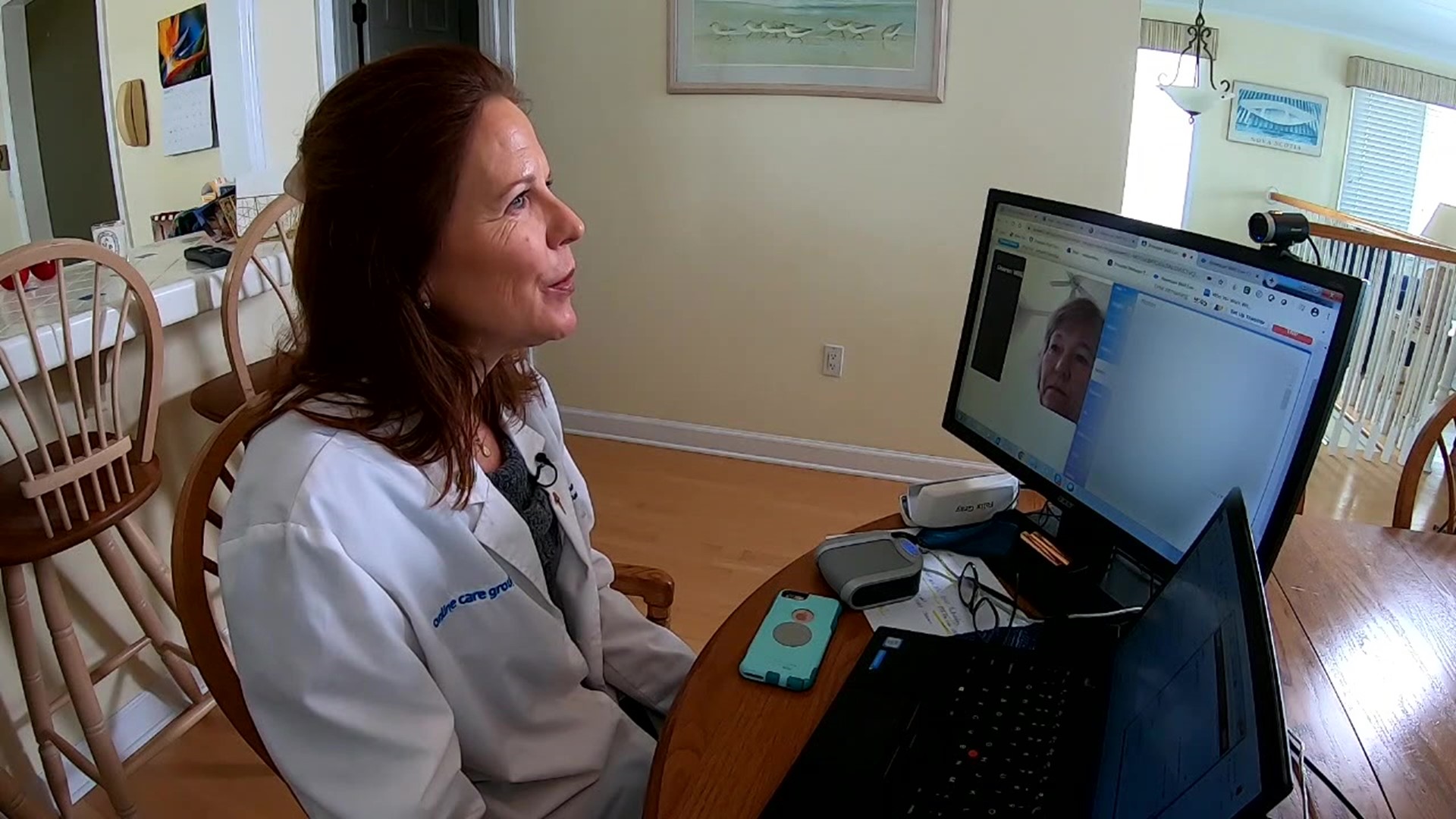MONROE COUNTY, Pa. — Newswatch 16 logged onto Microsoft Teams, a virtual chat platform, to speak with St. Luke's University Health Network's Dr. Jorge Scheirer.
He's one of the hospital's assistant chief medical information officers. He's also a telemedicine physician.
"Telemedicine is basically the use of information technology platforms to deliver health care. They are generally in two different locations instead of an exam room or an office," said Dr. Jorge Scheirer, St. Luke's University Health Network.
Dr. Scheirer says the need for social distancing has pushed telemedicine to the health care forefront.
Visits are done on a smartphone or computer with a camera from the comfort of patients' own homes.
Telemedicine visits have proven to be useful for people who think they might have COVID-19 but aren't sure.
"There are patients who are concerned they might have coronavirus, but maybe it's because they've had exposure to someone who has had exposure, but they don't actually have any symptoms—the idea of going into a doctor's office or to a hospital or laboratory, imagining center. I mean, there are people who are very concerned about going to the grocery store, right? So to go into an office where there may be people sitting there who might be infected, and you don't even know if they are infected and asymptomatic, it's kind of scary for people. So basically, it's facilitated that process for us," said Dr. Scheirer.
If you're choosing to see a doctor using telemedicine for whatever your health issue might be, it's important to have your medical information ready, make sure the device and camera you're using works, and log on somewhere quiet in your home.
"Try to keep as prepared as you possibly can. It will make the visit much more efficient for both you and your physician," said Dr. Scheirer.
Doctors want to stress it is still completely safe to go to the hospital if you choose. Also, telemedicine is not for emergencies, and anyone showing signs of a stroke or heart attack should go right to the hospital.

